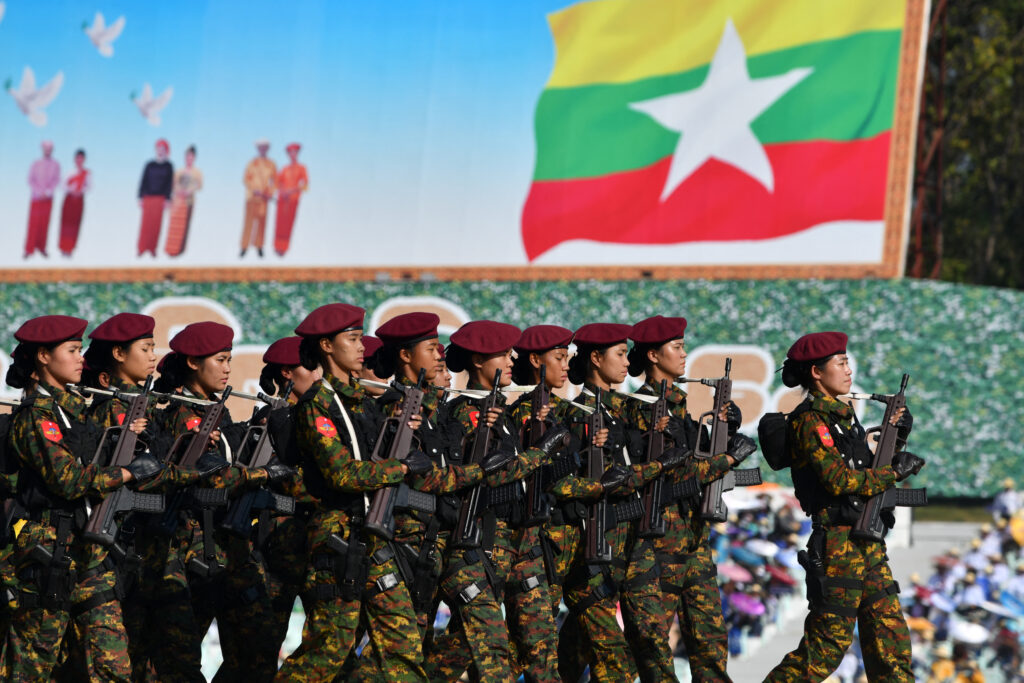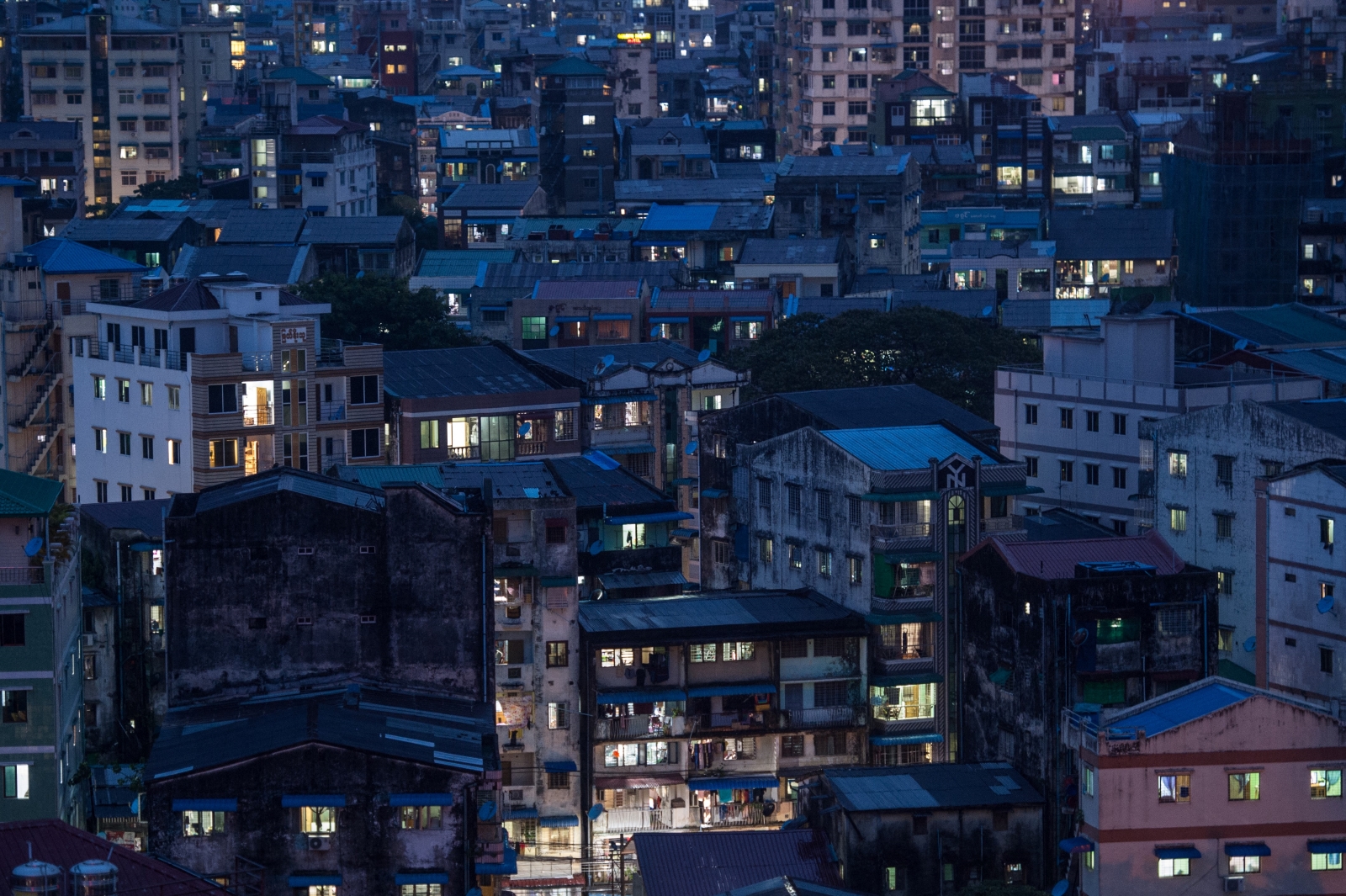BOOK REVIEW
In a new book, a former Frontier editor explains how the Myanmar military has preserved its power over decades, the terrible cost this has inflicted on the country and what the world should do about it.
By DRAKE ÁVILA | FRONTIER
Weaving together historical context with almost a decade of reporting in Myanmar, Return of the Junta: Why Myanmar’s military must go back to the barracks is both comprehensive and accessible to readers new to the subject. And although it doesn’t offer any radical new theories or perspectives, it provides ample food for thought for those already familiar with the country.
In the second chapter, “Abode of Kings”, author Oliver Slow’s first-hand account of the military-built capital Nay Pyi Taw exemplifies the military’s core creed, that it is the only force capable of holding the nation together. It also shows in concrete terms how the institution has deliberately isolated itself from the society it claims to protect, while also emulating the Bamar kings whose capitals were all built in the interior and far from the coast.
This clear articulation of the ideological trappings of military rule is matched by Slow’s empathy in allowing Myanmar people to speak for themselves, whether to express hatred, fear or sadness about the military and its crimes.
These personal accounts vividly reveal what has been lost to dictatorship. At the beginning, readers are introduced to 20-year-old Khaing Lwin, who lived a relatively carefree life hanging out with university friends in Yangon before the 2021 military coup drove him to join peaceful protests in the streets. The brutal crackdown on these protests prompted another transformation for Khaing Lwin, who became a committed armed revolutionary.
“The military is a very big, strong institution, so we will not win this battle in a short time. We have to continue working, to build up our training and our strength, and we can beat them eventually. That is my hope”, he told Slow.
The book, however, is not merely a moral crusade and explores more uncomfortable subjects, such as the widespread public support for the military’s “clearance operations” against the Rohingya, which in 2017 drove about 700,000 members of the persecuted Muslim minority group from Rakhine State into neighbouring Bangladesh.
Its first two chapters serve as background, focusing on the military’s self-image and history of impunity, respectively. Chapters four, five and seven each outline a unique mechanism of control deployed by the military: using the education system to instil deference to authority, dividing and ruling ethnic groups, and enmeshing the military in the economy.
In chapter six, “A desperate state”, Slow blends reportage and travel writing to provide a thorough and compassionate account of the lead-up and aftermath of the 2017 “clearance operations” against the Rohingya. However, the chapter is slightly out of sync with the rest of the book. At 42 pages and with much more detail than Slow affords other subjects, it seems like the seed of another book.
Further adding to the chapter’s dissonance is a brief, three-page subsection at its end called “Mrauk-U crackdown” that briefly describes the deepening of Rakhine grievances and the rise of the Arakan Army. This treatment of one of Myanmar’s biggest internal conflicts may seem far too cursory, but it’s testament to the challenges of writing for a general audience about such a complex country, and about a military with such a long and varied record of violence.
Elsewhere, though, the book does justice to the country’s hugely diverse struggles. In sections on systematic discrimination against Christians in Chin State, the military’s expropriation and subsequent pollution of farmland in Sagaing Region, and the fraying ceasefire in Kayin State, he shows that the roots of this conflict and oppression go deep. However, not all accounts from the country’s peripheries are laden with doom. A trip to Kayah State shows how the country’s fledgling tourism industry before the coup was benefiting communities on the margins.
Slow offers no silver bullet for forcing the military back to the barracks but gives recommendations tailored to the sources of the military’s power and wealth that are described throughout the book.
He calls for a member of the United Nations Security Council to refer the generals to the International Criminal Court, thereby putting the onus on China and Russia to either accept the referral or veto it. The latter would require these countries to publicly defend the junta – something that China in particular has been reluctant to do outright.
This and another recommendation, that more countries support The Gambia’s case against Myanmar in the International Court of Justice over the alleged genocide of the Rohingya, are strengthened by his earlier description of the military’s culture of impunity, which precludes domestic accountability in the absence of regime change.
Slow also advocates for “a specialised body” to highlight the junta’s various revenue channels and coordinate international action to cut them off, as an alternative to the “drip, drip action from the international community” described in the book by a Myanmar activist.
By exposing the military’s vulnerabilities, such as its limited access to foreign exchange amid diplomatic isolation, the book is a rebuke to countries that regard continued military rule as a foregone conclusion. In November, Singapore Foreign Minister Vivian Balakrishnan said the military has a “very high tolerance for pain, very high tolerance for isolation. I have been saying – whilst, I hope I am wrong – that this could take decades to resolve.”
While not underplaying the military’s entrenched power, Slow argues that its “tolerance for pain” has its limits – and that with a determined international response matching the Myanmar people’s long fight for justice, the country could be freed from its grip.
“Return of the Junta: Why Myanmar’s military must go back to the barracks” was published on February 23. Click here for links on how to buy it and read an excerpt of it here.







